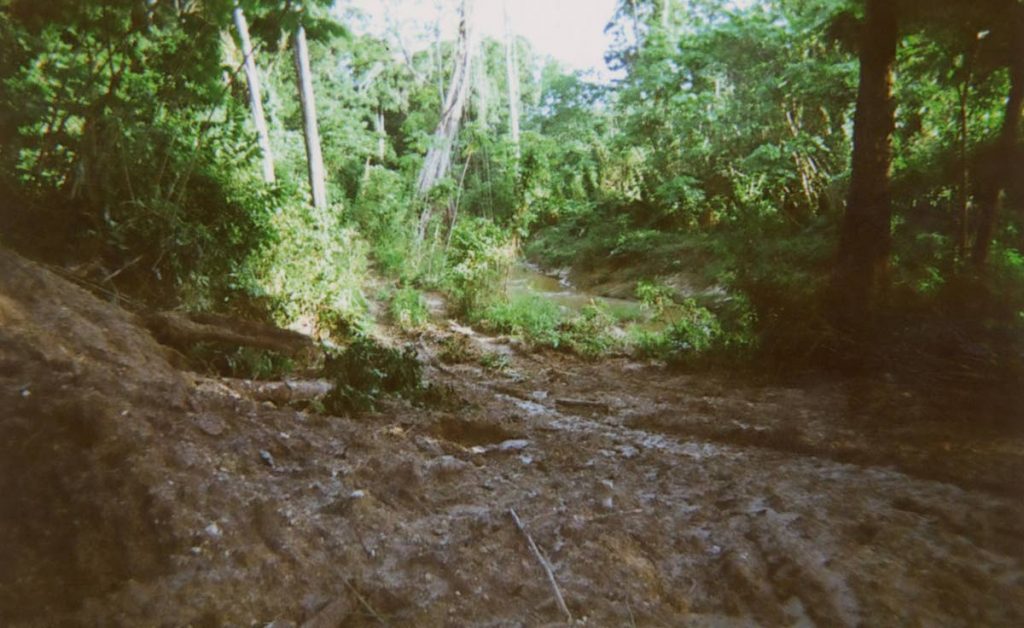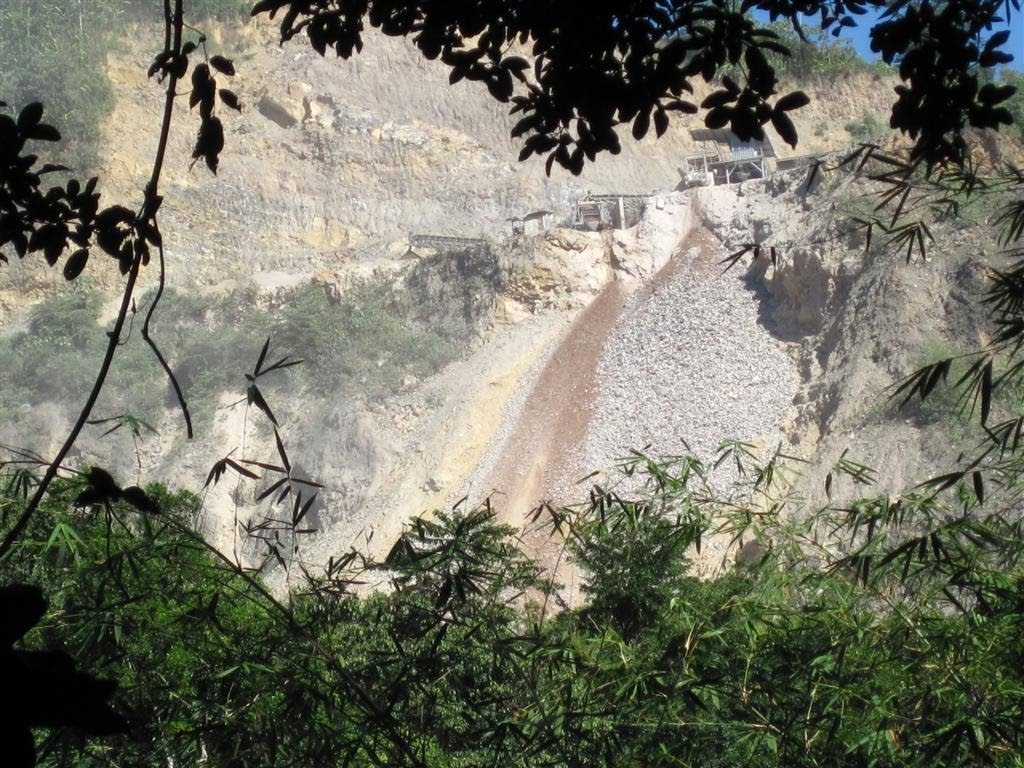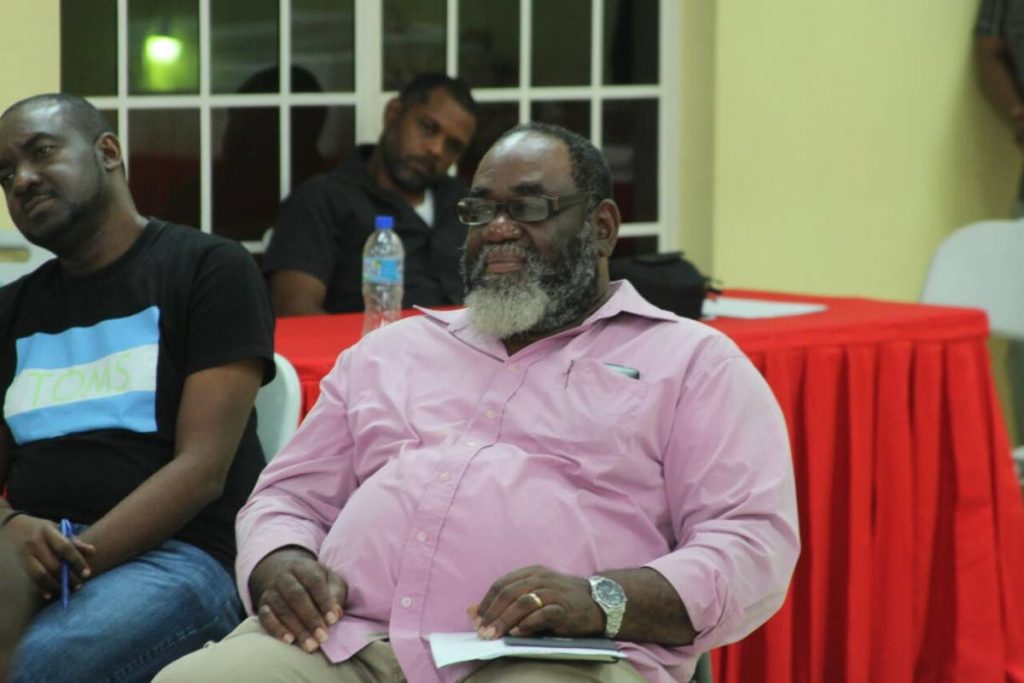Forests no longer sacred

Deeper community activism is being seen as one of the main solutions to tackle the perennial problem of illegal quarrying in the Toco/Sangre Grande constituency.
At a discussion, titled Digging Deeper: Seeking Solutions for Mining Sector Challenges, hosted by the TT Extractive Industries Transparency Institute (TTEITI) on Monday at Duranta Gardens Community Centre, Sangre Grande, stakeholders insisted the time had come for the Environmental Management Authority (EMA), Forestry Division, Police Service, Ministry of Energy, under whose purview quarrying falls, and other relevant state agencies to enforce laws that were already in place to prevent illegal quarrying.
Carlton Roberts, a retired deputy conservator of forests, said the wanton destruction of the forests contributed significantly to flooding in the largely rural region.

“I live in the Sangre Grande area and it always bothers me anytime a little rain fall, that Grande must be flooding and we found out it is because we are losing our forests and when rain falls, with limited percolation, it runs down and Grande is the basin,” he told the forum.
He cited re-vegetation as one of the ways to reverse this reality.
Roberts said he had been told that the quarry operators were “given conditions,” to restore areas to their original, pristine form.
“But once the operators takes up the aggregate, they forget about that clause.”
Roberts, a member of Trust For Sustainable Livelihoods, said the fledgling organisation formulated a proposal for funding from the ministry to conduct training for people in the communities to rehabilitate the forests.
He said: “There would be 30 in the first batch and then another 30 who would be trained on rehabilitation techniques so that there would be a cadre of people having the skills set. These people would be there to do the work that has not been done all the time.”

Roberts said the organisation will soon get the approval to begin the training.
“It will offer an opportunity for sustainable livelihoods for community people.”
Roberts wondered what had become of the checkers, who were once a feature of quarrying operations.
“There were quarry checkers in my day but their jobs have been made redundant. And some of them are sitting in various wardens offices just filing papers or doing nothing.”
Roberts said while the post still existed “they do not function as the Government’s record-keeping person coming out of the quarries.”
In his presentation, Roberts also complained about what he considered to be the seeming disrespect for forest reserves.
“Long time, a forest reserve was a sacred space. When I joined in the 1970s, forest reserves were sacred.”
He recalled that officers, in those days, had powers of arrest.
“If you had people in the forest reserve and they can’t explain what they doing there, you could arrest them, take them down to the station and charge them for entering into a forest reserve.
“Now, any and everybody going into a forest reserve. And what makes it worse is that people are going and living on forest reserves and coming to the Forestry Division for certification to get lights and water.”
Roberts said in his years as a top manager “nobody got that signature."
“But now they getting they water and they getting their lights and I don’t know how.”
TTEITI steering committee member and outspoken activist Gary Aboud supported Roberts’ view there was a pervasive disregard for humanity and the environment.
“Humanity is not sacred,” he said, adding in many instances the underprivileged were not able to fend for themselves.
Aboud, secretary of the environmental group Fishermen and Friends of the Sea, recalled the manner in which the remains of the indigenous peoples were first treated.
“The bones of the indigenous people have been trampled upon without respect by fellow citizens.”
Alluding to the work of the FFOS, Aboud said he understood the anxieties of stakeholders in relation to ridding communities of illegal quarrying.
“We understand the evolution of purpose that has caused us, like you, to be driven to the edge where you are.”
However, he urged them to be proactive.
“What are the alternatives?” Aboud asked. “Rally yourself together and explore judicial process because there is law.....This is the most powerful sector other than the oil and gas sector. When is the last time you saw a quarry go bankrupt?”
Aboud recalled a time when the Turure River was a go-to weekend destination.
“Every Sunday you had 25 cars of average citizens coming and enjoying $25 million worth of nature for free. What is there now? Nothing.”
He said the Amazonian forest had “a human right” in Brazil, “but here in Trinidad, we shoot and kill and remove ecosystems, habitats.”
Aboud recommended that quarries be obligated to submit a supplemental certificate of environmental clearance (CEC) to activist groups in communities.
The TTEITI, he said, also must “get its act together and stop pussy-footing around the fact that it does not have legislation."
He also called for a report hotline and evaluation report from officers who investigate incidents of illegal quarrying activities.
Eeron Melville, president of the Valencia Community Council, a group that has drawn much awareness to illegal quarrying in the region accused state agencies of abdicating their responsibilities.
“I stand here in amazement because most of the concerns that have been brought here,..., we have agencies and governmental departments that are geared to deal with these issues, nevertheless we still have these problems re-occurring on a daily basis,” he said.
“So, I think the problem that we are faced with is proper monitoring of these industries. We need to empower not just the EMA but other agencies that can effectively deal with situations.”
Melville said while they could sit and talk about all of the ills plaguing the sector, including the perennial floods in Sangre Grande and the threat to eco-systems, “the fact of the matter is that we have agencies and people being paid to do certain things and they are not doing it and still getting paid.”
He said citizens continued to be affected as nature went “down the drain.”
“So, the solution is, let us hold these agencies responsible for upkeeping and upholding the law.”
Quarrying laws
The Ministry of Energy and Energy Affairs maintains that quarrying without a licence is
an offence under the Minerals Act, Chapter 61:03 and the State Lands Act, Chapter 57:01.
The Finance Bill 2014 increased penalties for people convicted of offences related to illegal quarrying, specifically under the Minerals Act and State Lands Act.
The penalty for quarrying without a licence in contravention of section 45(1) of the Minerals Act will be increased from a fine of $200,000 and imprisonment for two years, to a fine of $500,000 and a term of imprisonment of five years upon first conviction.
Upon subsequent conviction for this offence, the fine will be increased from $300,000 and a term of imprisonment of three years to a fine of $700,000 and a term of imprisonment for seven years.

Comments
"Forests no longer sacred"